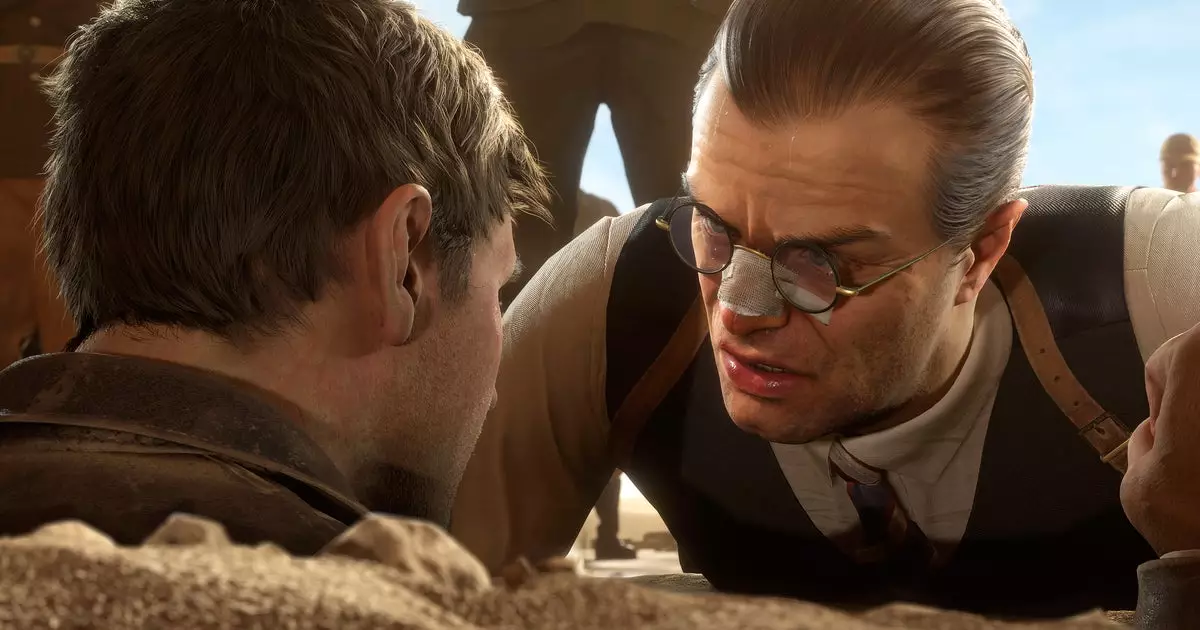When it comes to the world of escapist entertainment, the boundaries between historical representation and problematic fantasy can often appear blurry. A prime case in point is the beloved Indiana Jones franchise, particularly how it engages with sensitive historical fictionalization, such as the portrayal of Nazis. The upcoming game, “Indiana Jones and the Great Circle,” evokes a fascinating yet contentious discussion about how historical antagonists are depicted in media and the potential impact on societal perceptions of these figures.
Historical Context and the Character’s Ideology
At the heart of the Indiana Jones character lies a foundational dislike for the National Socialist Party of Germany. This sentiment is famously encapsulated in Indiana’s declaration, “Nazis? I hate these guys!” from “Raiders of the Lost Ark.” However, the comparison of Indiana’s actions—like inadvertently sleeping with a Nazi or impersonating an SS officer—raises important ethical questions. While these details may serve as plot elements, they can also blur the line between satire and unintentional endorsement of Nazi ideology.
The game’s context presents an opportunity for developers to clarify Indiana’s political stance in a contemporary setting they might believe to reflect moral clarity. In “Indiana Jones and the Great Circle,” players are cast as the protagonist who will engage in combat against a myriad of Nazi foes in a first-person experience. It’s an action-packed narrative that, while ostensibly championing the fight against fascism, could also inadvertently romanticize the violence perpetrated against these historical characters.
The developers behind “Indiana Jones and the Great Circle,” MachineGames and Bethesda, are navigating a tricky ethical landscape. With a disclaimer displayed prominently at the start of the game, they aim to distance themselves from any associations with Nazi propaganda—a vital step considering Germany’s strict regulations on the depiction of Nazi imagery in media. These laws dictate that such depictions should serve a legitimate artistic or educational purpose and not glorify harmful ideologies.
The disclaimer acknowledges the fictional nature of the narrative while admonishing against misinterpretation of the game’s violent content as a glorification of fascism. This legal cushioning attempts to stave off potential backlash, but the necessity of such disclaimers signals deeper ethical concerns: can one responsibly engage with these subjects without inadvertently glorifying their barbarity?
The Risk of Misinterpretation
One notable risk of portraying Nazis in a video game setting is the potential for misinterpretation by audiences, particularly those with extremist views. After all, it is easy for radical groups to manipulate images for their agendas, cherry-picking scenes that overly focus on action rather than context. While the game’s mechanics may focus on the thrill of combat, the broader implications of this violence deserve careful scrutiny.
Imagine a far-right individual using “Indiana Jones and the Great Circle” as a basis for glorifying violence against a historical enemy, an outcome that stands in stark contrast to the creators’ intended message. As a result, questions arise regarding whether the emphasis on combat perpetuates a superhero mentality that underestimates the complexity and tragedy of historical events, turning them into mere entertainment.
Amidst all the digital excitement and adventure that the Indiana Jones universe promises, a fundamental responsibility looms large for its creators: balancing the thrill of entertainment with an ethical portrayal of history. It is crucial to navigate these waters carefully so as not to reduce profound and painful histories to mere gameplay mechanics. The potential unintentional trivialization of serious events—like genocide—within a fictional narrative often demands more profound reflection from artists and developers alike.
Ultimately, “Indiana Jones and the Great Circle” may be an engaging gaming experience filled with action and adventure, but it invites an important dialogue about the responsibilities of creators within the entertainment spectrum. The challenge lies not only in crafting a compelling narrative but also in ensuring that the story aligns ethically with the complexities of the real-world histories it draws upon. As audiences approach the game, they too must consider their interpretations—cognitive engagement free from glorifying the dark chapters of history that should not be celebrated but rather critically examined and remembered.


Leave a Reply